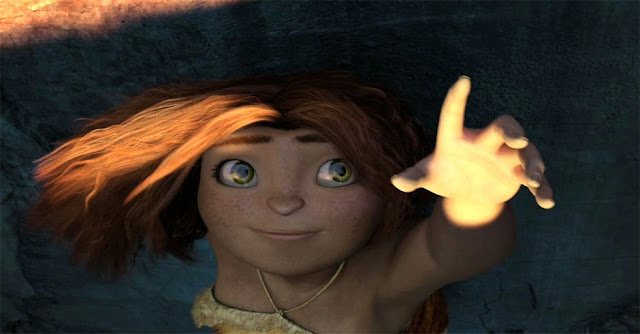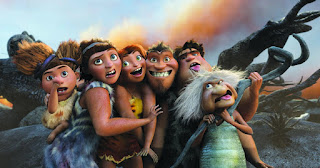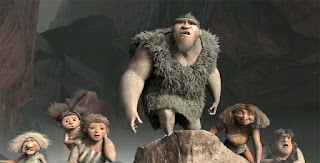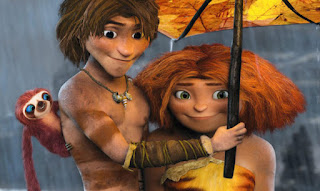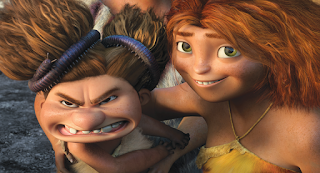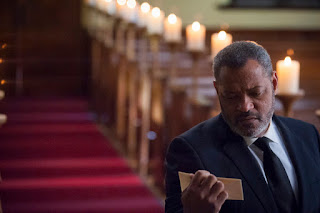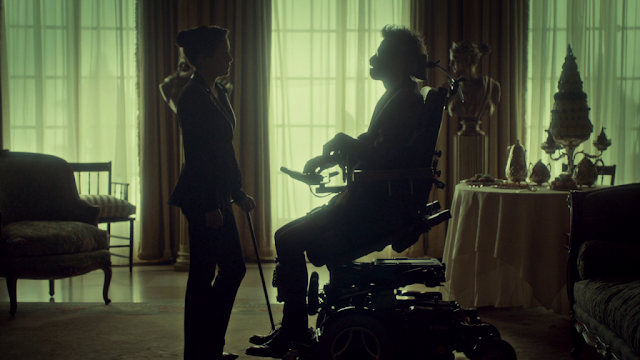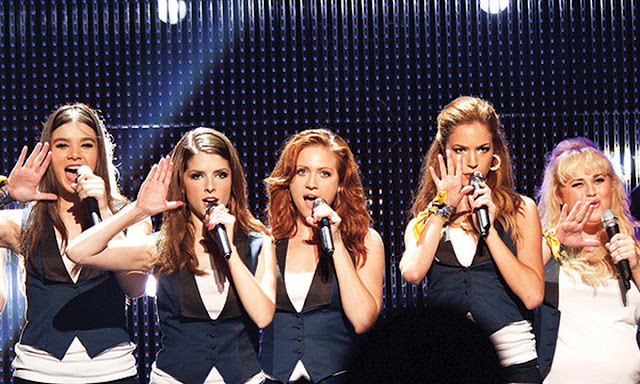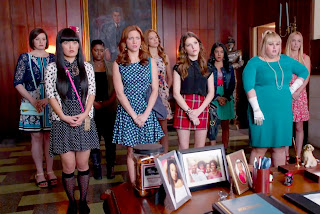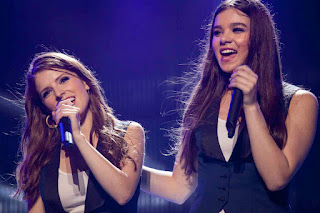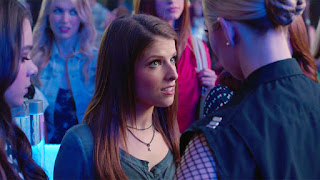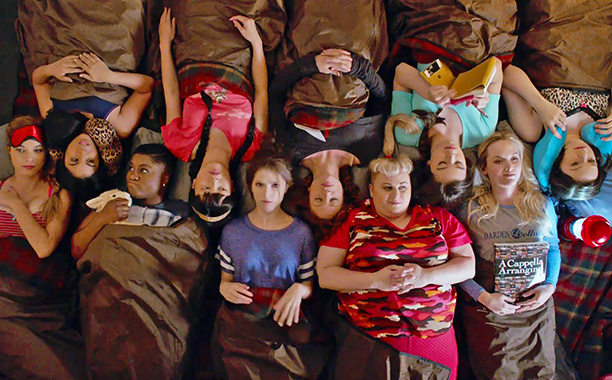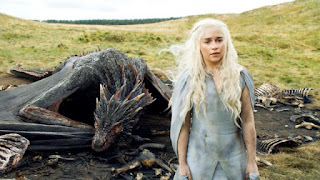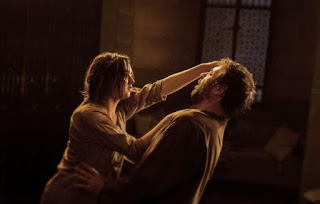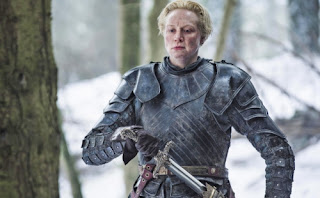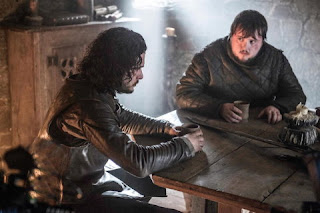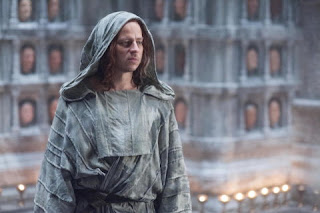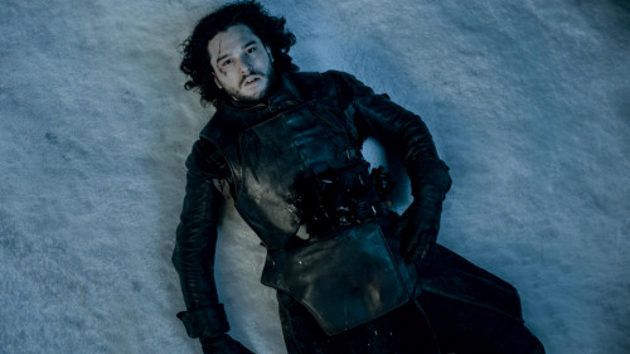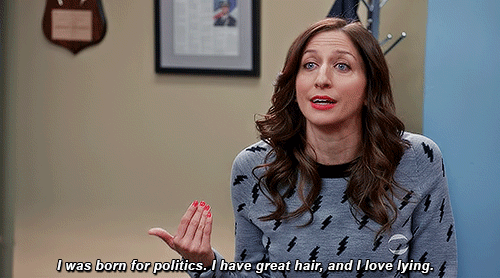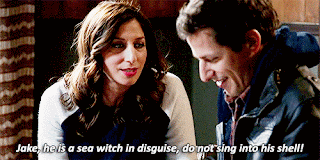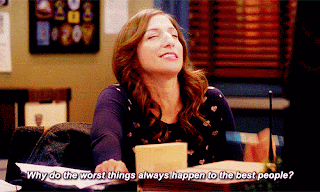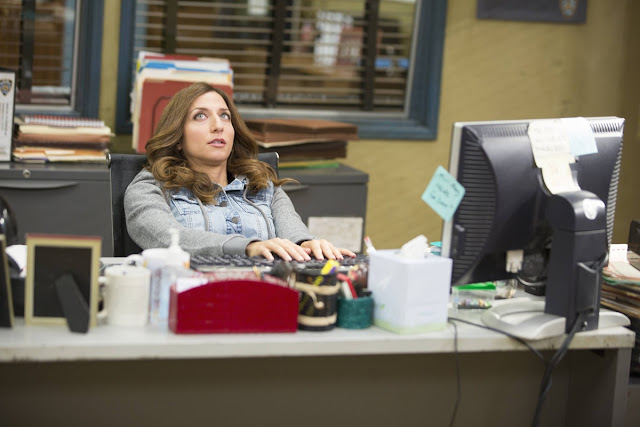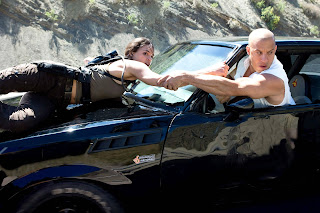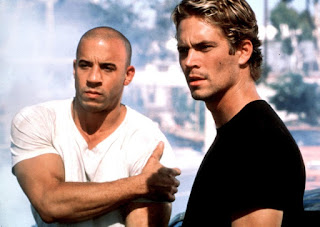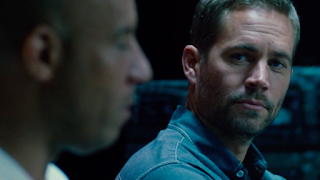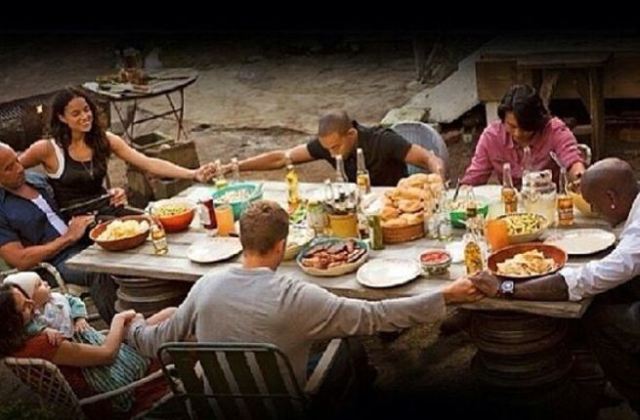I guess I'll start by saying this: if you're looking for a movie that's original, fresh, unexpected, and completely unlike anything you've ever seen, then keep looking. The Croods is none of those things. But, and I know this might be surprising coming from me, that doesn't mean it's bad.
The Croods is basically a mashup of your favorite children's movie tropes, but it's done really well. I mean, it's the rare case of a film that doesn't really have anything new to say, but does a good job saying it anyways. It's a heartwarming family adventure about what it means to really live, and it features a father afraid his daughter is growing up too fast, a budding romance between said daughter and a strange new boy, jokes about the doofy son and the odious mother-in-law, and lots of silly physical humor. But it's good. Really.
It's not that I went into this expecting The Croods to suck, for the record. I don't think I had much expectation about it at all, really. It's a Dreamworks movie and those can be pretty hardcore hit or miss. I wasn't expecting to like it as much as I did, but I also wasn't expecting to be able to predict the entire plot from the opening narration. So, you know, it goes both ways.
But, for what it's worth, this movie does have some pretty cool stuff to say, even if it's not the point of the film. Because for all that the plot is kind of stale, this movie still manages to say more about gender dynamics and real relationships than ten other kids movies put together.
So, for those of you who haven't seen it (which I assume is almost all of you), here's the scoop: The Croods is a family action-adventure movie that features a family of cavemen (and women). They live in a world that they cannot explain or understand, ruled by fear and trembling and by the very simple rule that new things and the unknown must necessarily be bad.
To be fair to them, it's not a bad life strategy and has kept them alive a lot longer than any of their neighbors. The Croods live in a world of pain and terror and constant threat of death, so it's easy to see why "Stay in the cave!" is their family motto.
Unfortunately, constantly being afraid of everything is a bit of a downer when you're a teenage girl, which is why Eep (Emma Stone) is the only one of her family to really want to get out of the cave and explore. Her father, Grugg (Nicholas Cage - yes), constantly despairs of her. When will she learn to settle down and be terrified all the time? She needs to be less curious!
The rest of the family by and large follows Grugg's example: there's the wife Ugga (Catherine Keener), the younger brother Thunk (Clark Duke), Gran (Cloris Leachman), and the mildly psychopathic baby Sandy (Randy Thom). They all live together in the cave, hunt together when they can no longer stay inside without starving to death, and generally subsist in a meager existence that is harsh and cruel but keeps them alive.
Until all of that changes. One night, Eep wakes up to see a strange light coming through the rocks that block the mouth of their cave. There's something out there! Because she's curious and not nearly as afraid as she "ought" to be, Eep goes out to investigate and discovers - a boy!
Yep, she's found Guy (Ryan Reynolds), a skinny, scrawny boy who is clearly not actually a caveman. Guy has fire and inventions and a pet and is completely different from anything or anyone she's ever seen. Eep is entranced. And Guy is entranced right back. Eep is strong and curious and fun and really fast and he's never met anyone as amazing as her before. It's love at first chokehold.
Unfortunately, Guy isn't going to stick around and get to know Eep's family. The world is ending, or that's what he says. There's an "earth-shaking" that's coming towards him. Rocks falling, mountains splitting, lots of lava - the world is coming to an end and Guy is racing as fast as he can to make it up to this big mountain in the distance. He thinks he'll be safe there, and he wants Eep to come too.
Eep won't go without her family, and so Guy leaves her behind. But that ends up not being a big problem because pretty soon the earth-shaking comes and completely destroys their cave. They need a new cave, but more importantly, they need a new place to be safe. Since caves and the world they've always known are definitely no longer safe.
Grugg is naturally completely against all of this, but as the family bumps and falls through the new world they've found, he's forced to admit that there is world outside the cave. And from there it's pretty much your standard family action-adventure. Eep and Guy find each other again and fall more and more in love while Grugg sulks and fumes about it. He's frustrated that his ways are no longer the best ways and infuriated at all of Guy's "ideas" and "thoughts" and how Eep seems to like them so much.
It doesn't help that Guy is genuinely saving his family's life in a way that he can't, and showing them a world that he desperately wants to shelter them from. It's a much more literal interpretation of this plot than most films manage, but it works. Grugg wants to very literally keep his family locked in a cave forever so that they'll be safe, but he has to learn and concede that, ultimately, it's not living if you're trapped inside.
If all of this sounds familiar, then that's because it is. It's basically the exact same plot as Hotel Transylvania, a movie we coved a few months ago, only done way way better. Because, and this is what makes The Croods actually worth watching, it's not like Grugg doesn't have a point.
The world he lives in, the world they all live in, really is terrifying and out to get them. There are monsters around every corner and they have to struggle to find anything to eat, let alone to find adventure and freedom. But, at the same time, Eep has a point too. What they've been doing isn't so much living as just "not dying", and if that's all you have then what's the point?
All of this is good and compelling and really cool, but it's not what I actually want to talk about. See, while I like all this and it really is a case of a film finally getting this finicky plot done well and without condescension, I'm actually much more interested in Eep as a character and her romance with Guy.
Eep is in a lot of ways the stereotypical female lead for a film like this. She's the eldest daughter, she's curious and rebels against her father's wishes, she's "different" and "adventurous" and ultimately falls for a guy who her father has to struggle to even understand. But she's also quite different from the usual lead: for starters, she's not skinny. She's very intentionally animated to actually look like a caveman - she has a low forehead and a scrunched up face and giant shoulders with really strong, muscular arms. Her legs are powerful and kind of short. She hunches. She wears an animal skin and doesn't ever think about whether or not she's pretty. Why would she?
Even more than this, though, Eep is unrelentingly physical. She doesn't talk much, preferring grunts and groans*, and she's really tactile, and she's just...she's different. She's not like your average coming of age story girl. There's nothing soft or delicate or fragile about Eep. Literally nothing. She looks like she could break you in two.
By contrast, Guy is all long limbs and skinny bones. He's lanky and awkward and not great with his body. He's very smart, though. Has great ideas. And Eep likes this about him. She likes how he thinks about things and has hope and sees his way around situations to find new solutions. She likes how different he is. And he, well he likes how different she is. He likes that she's brave and strong and can pick him up and throw him.
Together they actually work. You believe that they really have a connection and could, eventually fall in love. The movie doesn't oversell it either. They aren't magically in love at first sight, or even necessarily by the time the credits roll. They're mostly shoved together by circumstances, but they have such a strong attraction that you can totally see something building there. It's less that we're told they love each other and must be together forever than that we can see how they work. They're a good team. And that's most of the battle right there.
Additionally, this movie gets a lot of props for making the characters - all the characters - really complex and fleshed out. They have real personalities and grow and develop throughout the film. Even the minor characters. It's really cool. Plus, it's rare to see a film where over half the characters are female. That's just kind of nice.
Well, actually let's dig into that a little more. It's really cool in this movie how over half of the characters are women and that is never commented on. Better yet, these women all look, act, and think in completely different ways. You've got Eep, who we already talked about, but there's also Ugga, who loves her family and her husband but also adores the freedom and happiness that Guy has brought into their lives. Ugga understands fear and is completely ready to go back to the cave when something bad is happening, but she's also more willing than her husband to reach for something new.
Gran is both an archetype of the weird, inappropriate granny, and also of a woman who has had to become hard in order to survive. She tells this one story that's kind of funny but also really tragic about how she fell in love once but then her father killed him and sold her to a different man.
And it's just sort of stated matter of fact, but it explains so much about her as a person and her role in the family. She's the unrelenting matriarch and she's cranky and she's prone to trying to eat the children, but she's completely her own character.
And Sandy is very much the stereotype about the psychotic baby, but she's also really interesting. I mean, she's ferocious and basically feral, but as the movie progresses and the family learns to see things without the lens of fear and constant worry, we see Sandy calm down. She starts to look around her more, to see the world without looking for threats. By the end of the film she's still kind of a terror, but she's more like an actual child and less like a possessed hyena.
They're all female characters with more complexity and individuality than like five other movies put together. None of them relies on sexist stereotypes, none of them is inexplicably attractive, they're all just people. Cavepeople, yes, but definitely just people.
Which is why this movie works and other films, like, say, Hotel Transylvania, don't. The Croods is a story about a bunch of characters who feel real, and so we care about what happens to them. The stakes of their story are high enough that we become genuinely invested in what's going to happen. All of this only happens because the writers took the time to make every character in the film well developed and complex. Just saying, it's kind of important.
So while I really don't recommend this movie as a scientific guide**, it's definitely worth a watch. I think it's the kind of movie that is a really great fit for kids in late childhood (you know, like 7-12 range), but it's good for all ages. It has a strong female lead who looks like a real person, is well-developed, and has wants and desires anyone can relate to, the plot is pretty good if predictable, and the ending will make you feel all gooey inside. Recommend.
Besides, there are worse things than having a kid who wants to grow up and be Eep. Eep's pretty cool.
*Which led me to the hilarious realization that someone had the job of prompting Emma Stone to make a bunch of different grunting noises into a microphone. I wish I'd been there for that. It sounds hilarious for everyone involved.
**My one quibble was how much of the film I spent glaring at the screen over how "evolution doesn't work like that, oh my gosh!" Just - turtles and birds can't be mixed together to create flying turtles with four wings, okay? Science says no!

